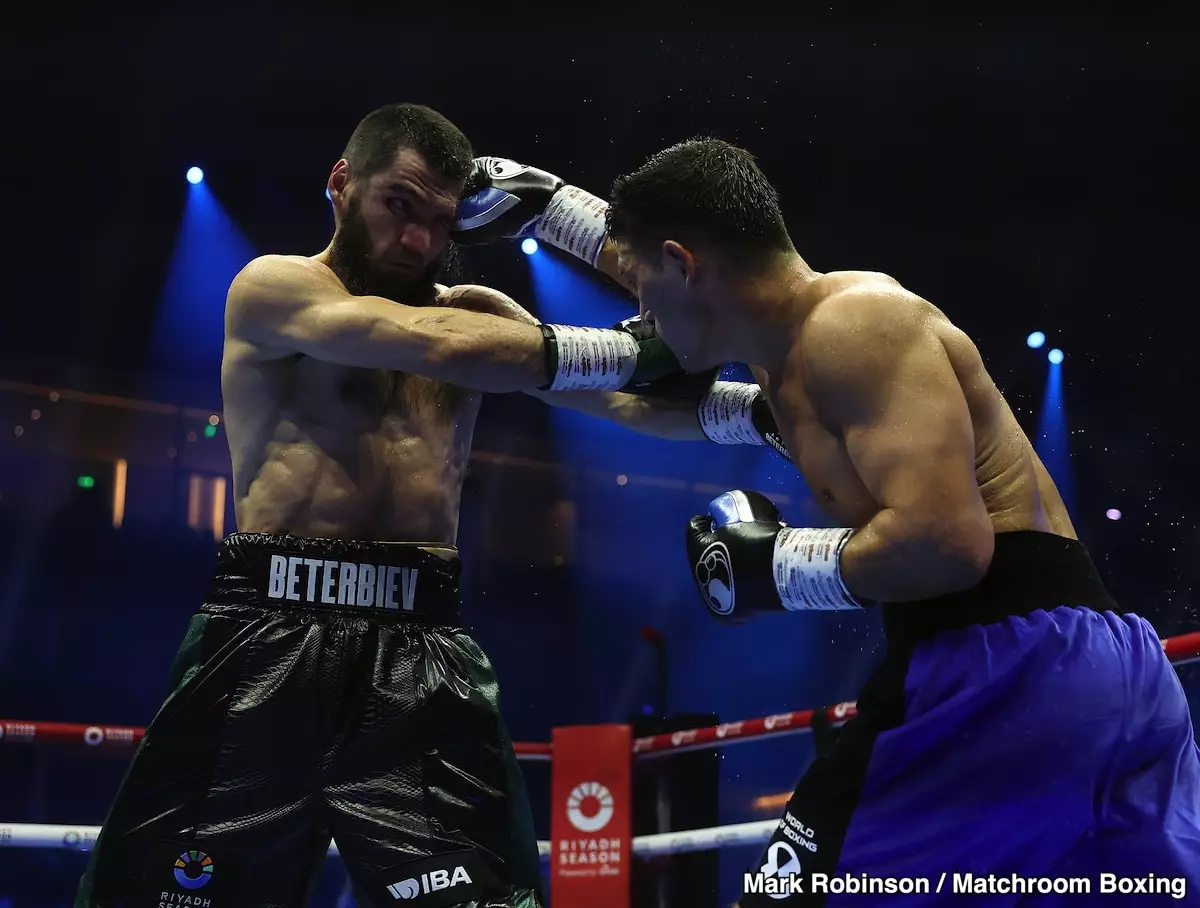In the world of boxing, the clash between Artur Beterbiev and Dmitry Bivol for the undisputed light heavyweight championship was more than just a match; it was a mesmerizing showcase of strategy, endurance, and the psychological battle that fighters engage in. This high-stakes bout, held at the Kingdom Arena in Riyadh, Saudi Arabia, saw former trainer Teddy Atlas scoring the fight close at 115-113 in favor of Beterbiev, reflecting the tension and drama that unfolded over twelve rounds.
As the fight began, Dmitry Bivol showcased impressive technique and speed, utilizing his jab to maintain distance and control the rhythm. Even Teddy Atlas noted Bivol’s strong start, particularly his mini-flurry of punches in the seventh round, which hinted at a potential knockout. However, this burst of activity would soon become a double-edged sword, as it seemed to have awakened the beast in Beterbiev. The toll of Beterbiev’s power shots began to have an undeniable impact, tiring Bivol as the rounds progressed.
Beterbiev’s resilience and unyielding pressure were palpable. After the seventh round, it was evident that Bivol, despite his promising start, began to falter. Atlas’s analysis highlighted the significant shift in trajectory at this point in the fight — an examination revealing that Beterbiev was not merely a powerful puncher but a fighter who could adapt and capitalize on his opponent’s fatigue. Once the pressure intensified, it appeared that Bivol lacked the energy and decisiveness to mount a consistent offense.
Throughout the last rounds, Bivol’s boxing seemed dictated more by survival than strategy. Atlas mentioned how the cumulative effect of Beterbiev’s body shots seemed to drain Bivol’s will. It’s critical to note how psychological factors intertwine with physical performance in boxing. A fighter’s mental state can greatly influence their ability to execute strategies effectively, and Bivol’s reluctance to engage further illustrated the impact of mounting pressure.
As the match unfolded, it became clear that fatigue had set in for Bivol, manifesting in his form and decision-making. In the rounds that followed, Beterbiev seized control, showing his tactical prowess by closing strong in crucial moments. This relentless pursuit that Atlas described as “tracking prey down” indicates a fighter who understands the psychology of his opponent and the art of intimidation.
The aftermath of the fight brought controversy, particularly with Bivol’s promoter, Eddie Hearn, expressing his feelings of unfairness regarding the outcome. However, it is essential to recognise that in close contests, perception can often cloud judgment. Atlas’s commentary pointed out that it may have been wise for Hearn to acknowledge Bivol’s decline under pressure rather than framing it as a robbery. The decision showcased the judges’ perspectives: 114-114, 115-113, and 116-112 illustrated a closely fought battle, with the judges perhaps feeling the same undeniable shift in momentum that the fans witnessed.
What stood out was how well Beterbiev managed to score strategically, taking rounds with solid finishes that left a lasting impression on the judges. The one dissenting score of 116-112 certainly raised eyebrows, a margin Atlas considered a bit too wide. The fight served as a reminder of the subjective nature of boxing scoring, where close rounds can tip the scales based on how the fighters end them.
As the fight waned, Beterbiev’s experience became increasingly evident. Although nearing the end of his physical prime, he paced himself judiciously, ensuring he had enough energy to mount a significant offense in the later rounds. Atlas’s observation about Beterbiev’s choice to reserve stamina in the ninth round was particularly insightful — an indication of a fighter who has learned the art of adaptation over time.
The victory also raises questions about Beterbiev’s potential trajectory moving forward. His technical soundness combined with raw power positions him as a formidable champion within the light heavyweight division. The necessity for him to engage more with body punching earlier in the fight could open dialogues about his evolving style and preparation for future opponents.
Beterbiev’s victory over Bivol was not just a measure of strength, but a masterclass in tactical execution and psychological warfare in the ring. Observations made by boxing analysts like Teddy Atlas provide deep insights into the intricacies of professional boxing. A fight of this caliber not only boosts the careers of its protagonists but also enriches the sporting narrative of boxing itself.


Leave a Reply